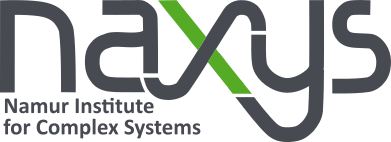
- This event has passed.
Ahmed Almansoori (Université de Namur)
May 5, 2022 @ 13:00 - 14:00
Title: On the evolution of mechanisms for collective decision making in a swarm of robots
Abstract – A swarm of robots can collectively select an option among the available alternatives offered by the environment through a process known as collective decision-making. This process is characterised by the fact that once the group makes a decision, it can not be attributed to any of its group members. In the large majority of the swarm robotics literature, only a few types of mechanisms have been used to allow the robots of a swarm to make collective decisions. Namely, the mechanisms referred to as the Voter and the Majority model or variations of these two models. In this talk, we present an alternative solution based on the use of dynamical neural networks as individual decision-making mechanisms. This alternative solution proved effective in a perceptual discrimination task. We will show the results of extensive comparative tests that quantitatively evaluate the Voter model and the dynamic neural network model on a variety of operating conditions and for swarms that differ in their size on a perceptual discrimination task. The results of our study clearly indicate that the performances of a swarm employing dynamical neural networks as the decision-making mechanism are more robust, more adaptable to a dynamic environment, and more scalable to a larger swarm size than the performances of a swarm employing the Voter model as the decision-making mechanism.
The seminar will take place in room S08 at the Faculty of Sciences

